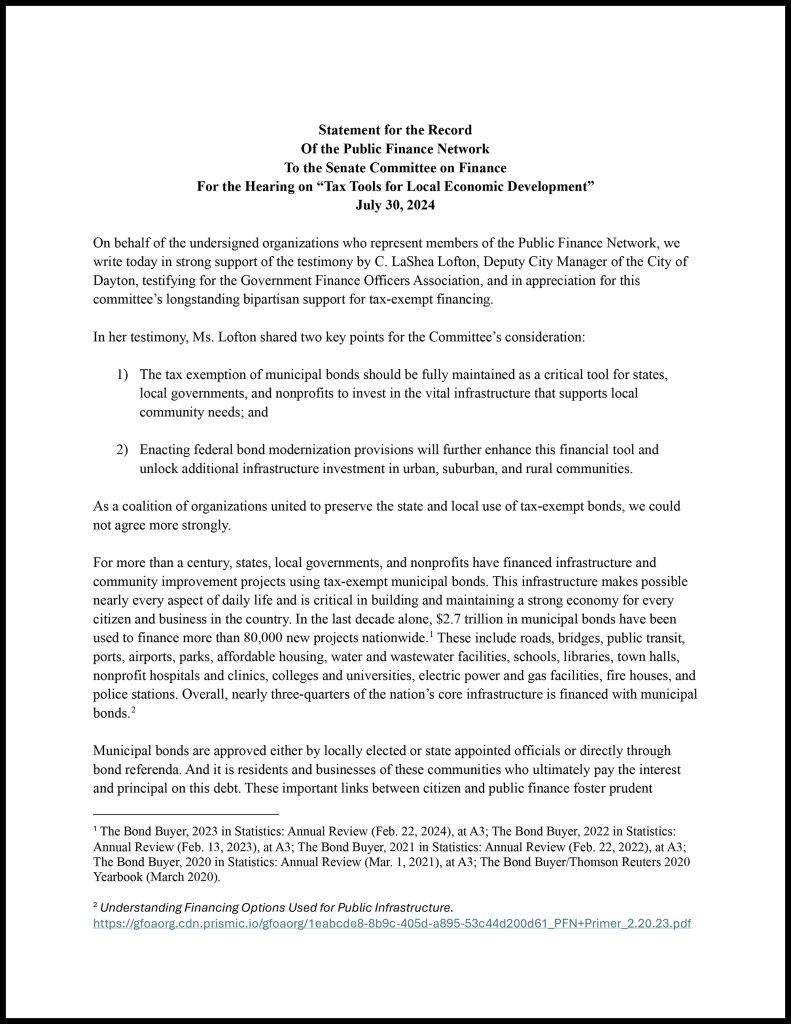APTA/Others Urge Congress to Support Tax-Exempt Municipal Bonds
8/15/2024
APTA, and more than 20 other organizations who represent the Public Finance Network, sent a Statement for the Record to the Senate Committee on Finance for the July 30 hearing on “Tax Tools for Local Economic Development,” expressing their strong support of the testimony by C. LaShea Lofton, deputy city manager of the City of Dayton, testifying on behalf of the Government Finance Officers Association on the need for tax-exempt municipal bonds.
In her testimony, Lofton shared two key points for the committee’s consideration:
1) The tax exemption of municipal bonds should be fully maintained as a critical tool for states, local governments, and nonprofits to invest in the vital infrastructure that supports local community needs; and
2) Enacting federal bond modernization provisions will further enhance this financial tool and unlock additional infrastructure investment in urban, suburban, and rural communities.
The statement noted that for “more than a century, states, local governments, and nonprofits have financed infrastructure and community improvement projects using tax-exempt municipal bonds. This infrastructure makes possible nearly every aspect of daily life and is critical in building and maintaining a strong economy for every citizen and business in the country. In the last decade alone, $2.7 trillion in municipal bonds have been used to finance more than 80,000 new projects nationwide. These include roads, bridges, public transit, ports, airports, parks, affordable housing, water and wastewater facilities, schools, libraries, town halls, nonprofit hospitals and clinics, colleges and universities, electric power and gas facilities, fire houses, and police stations. Overall, nearly three-quarters of the nation’s core infrastructure is financed with municipal bonds.”
“We urge Members of Congress to continue supporting the tax-exemption for municipal bonds and to advance proposals that would support our critical market and expand the financing tools available to our communities.”
